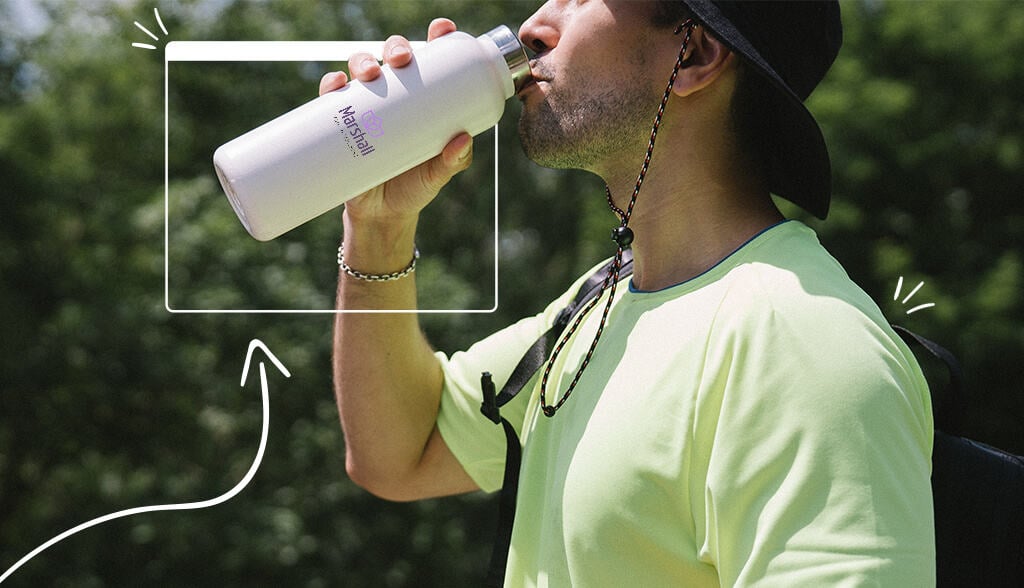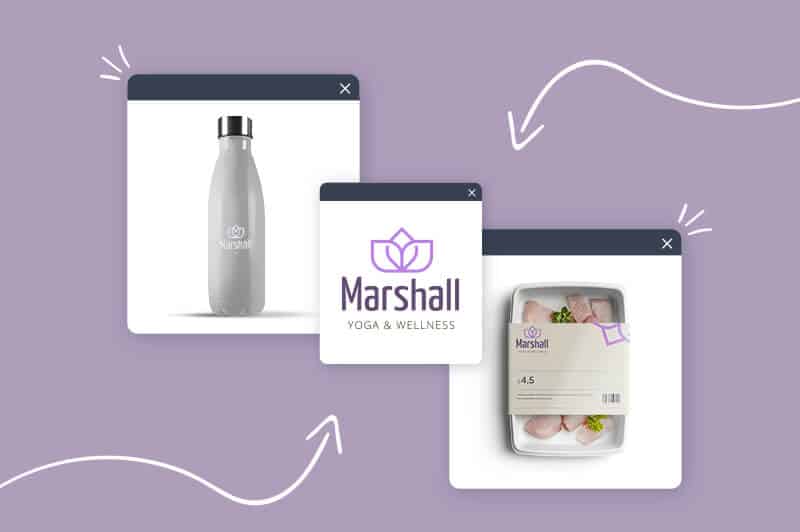
Climate change and pollution are increasingly important issues for businesses, governments, and individuals. More and more consumers are paying attention to how companies and elected officials respond to climate change. They often seek to support sustainability by spending their money with green-minded businesses. Because of this trend, both consumers and retailers are making sustainable shopping a priority.
More retailers are paying attention to how they source, manufacture, package, and sell their products. However, when it comes to marketing swag, budgeting matters and businesses tend to opt for the cheapest products (instead of the greenest) to keep costs down. These promotional products are essential for marketing, especially for small businesses, so many may think they have no choice but to use plastics and other non-sustainable materials.
However, sustainable promotional products can pay off, even if you have to invest more in them. They can raise your company’s profile among eco-minded consumers and bring more attention to your business than traditional, cheaply-made, disposable swag.
If you are starting a small business, opting for eco-friendly promotional products can help you define your brand and create a green business operation.
Marketing swag includes biodegradable products, such as t-shirts and other apparel, notebooks, and cloth totes. Other items, such as pens, cell phone cases, cups, and water bottles, use plastics.
Plastics are cheaper material and ideal for small businesses who want promotional products on a tight budget. However, these products contribute to America’s growing waste problem. The country produces 286 lbs (130 kg) of plastic waste per person each year. Plastic packaging adds to the issue.
When you factor in carbon emissions due to shipping raw materials and finished products and the pollution from producing the items themselves, promotional products could impact the environment. There are plenty of options for sustainable swag. With the right plan, you can even turn these green promotional products into part of your brand identity.

Eco-friendly promotional products, such as those made from recycled or biodegradable materials, are better for the environment. Earth-friendly swag can also benefit your business, although it is often more expensive than standard items.
Firstly, investing in green promotional products can add value to your business by helping you build a loyal customer base. Many consumers, especially those in younger generations, like to buy from companies that promote sustainability.
With sustainable swag, you can build a brand identity that includes environmental friendliness. Since many companies still rely on cheap, plastic promotional products, it can be quite simple to stand out from your competitors.
In addition to gaining a competitive edge and getting the attention of shoppers who actively seek green businesses, you can also work to increase the number of impressions that your promotional items get. The well-made sustainable items last much longer than cheap plastic ones. The consumer can be reminded of your brand for years afterward. You can include social media or website information on your items to get a long-term boost in online traffic. In other words, the longer your promotional product lasts, the more marketing value it provides.
There are several options for sourcing value-producing eco-friendly promotional products for your marketing campaigns. Again, the system is set up for cheap marketing swag, but you can find greener alternatives.
The fundamentals of promotional product marketing remain the same regardless of your chosen materials. You still need a well-designed logo that captures your business’s personality. In addition to logo creation and placement, you need to ensure that your products include the necessary call to action. This could include a QR code, social media handles, or a website URL.
Here are some additional steps that you can take to make your marketing swag fully sustainable.
One of the main problems with many promotional products is that they simply aren’t useful. These products only add value to your company if consumers utilize them. If they do not, they will quickly end up in the trash, which is bad for the environment and reduces the number of impressions your logo gets.
You can print your logo on useful items like insulated mugs, durable sweatshirts or winter hats, or quality kitchen products that can spend years in a consumer’s possession.
Some options, like hand sanitizer or soap, are equally practical and cheaper to source, but they will not last as long.
While you will have to make decisions about how much to invest in your marketing swag, you should be sure that your chosen products are items that people will use more than once.
Every business wants to make sure they have enough for their marketing campaign. You might purchase a specific amount to qualify for bulk pricing, or you could get more so that you won’t run out at a trade conference.
This promo product ordering strategy often results in an over-supply. You will end up disposing of the extras, which is not great for the environment or for your marketing budget.
You can avoid this problem by erring on the side of shortage rather than surplus. This strategy is doable if you can find a reasonable supplier who is willing to work with low order minimums and print extras on demand if needed.
Sometimes, you can opt to forego sustainable swag. Digital swag does give rise to the same kind of manufacturing, distribution, and disposal issues that physical products do.
You could give out subscriptions to wellness apps, digital gift cards, and vouchers for online subscriptions. You can take this opportunity to partner with businesses that are already known for promoting sustainability. You can even require an action, such as signing up for your newsletter, to access the digital promotion.
Renewable resources can be replenished, so using products made from these materials is typically better for the environment. Sustainable raw materials include bamboo, cotton, and cork.
You can also make swag from recycled materials, such as repurposed glass candleholders (with your logo on them) or notebooks with recycled paper.
If you can’t find products made from recycled materials, consider recyclable materials. There are many options in this category. While aluminum isn’t renewable, it is highly recyclable and good for creating long-lasting items.
You will need to make decisions about how much you want to invest in your products. However, you should be able to find renewable, recycled, or recyclable products at every price level.
Whether sustainable or not, most merchandise gets manufactured in the developing world, where labor standards are generally low. If you buy your products from suppliers who source from these regions, consider doing your due diligence and learning about the working conditions in the factories where these goods get made.
Alternatively, consider buying from local businesses or small wholesalers instead of major corporate brands. Local businesses spend more of their profits in the community, and they are typically more transparent about labor practices and adhering to standards.
You can find a local or small company whose values match yours. Not only will you be getting ethically-sourced products, but you will be supporting other businesses with the same values.
While you pay attention to the sustainability of your marketing swag, don’t forget about the environmental friendliness of the packaging. Perhaps you don’t have much control over the packaging policies of your suppliers, but you can put some thought into the packaging you provide for your consumers. For example, you can opt for paper or cardboard instead of plastic.
Consumer products hardly ever last as long as we want them to. Traditionally, that is true of promotional products. They are meant to carry your logo for a short time, not work forever. However, if these products did last for a long time, they would increase the number of impressions your logo gets and help you build an image as a business that values quality.
This portion of our website is for informational purposes only. Tailor Brands is not a law firm, and none of the information on this website constitutes or is intended to convey legal advice. All statements, opinions, recommendations, and conclusions are solely the expression of the author and provided on an as-is basis. Accordingly, Tailor Brands is not responsible for the information and/or its accuracy or completeness. It also does not indicate any affiliation between Tailor Brands and any other brands, services or logos.
Products
Resources
@2024 Copyright Tailor Brands